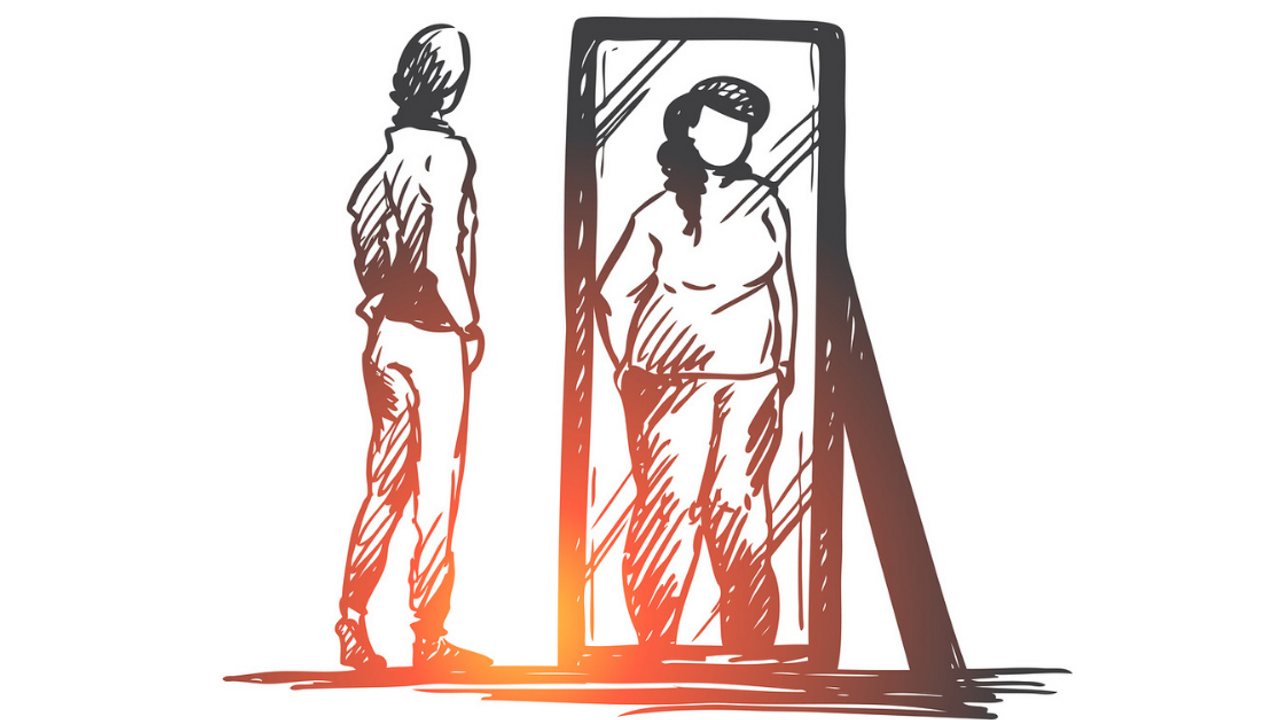Body Image during Perimenopause (Part II) - Eternal Battle With Yourself
Jul 13, 2020
Physical and mental symptoms experienced during menopause can result in body image issues similar to those experienced during puberty. In fact, 80% of menopausal women report having body image issues. Body image is a multifaceted construct of perception, imagination, emotions, and cognitive components about our relationship with our bodies. The most important word of the definition is "perception" -- It's all about how we see ourselves, not how others see us. It is not dependent on size, gender (although women are statistically more affected), age, and/or ethnicity. I’ve shared my story in Part I of this series.
Unfortunately, body image is mostly used with a negative connotation in conjunction with topics such as eating disorders, depression, and low self-esteem. Rarely do we hear about positive body image and that is part of the problem.
Here are some stunning facts:
- 50% of 3-6-year-old girls worry about being fat
- 80% of girls have tried a fad diet by the time they're in 4th grade
- 80% of women are dissatisfied with their appearance
On a daily basis, we are bombarded with artificial, photoshopped images, advertised as "real" women. Even articles in magazines promoting healthy body image and being happy with your body use photos that have been retouched and altered to the extreme.
Reality check: those bodies don't exist in real life!!
Children grow up in a society that glorifies an ideal body that doesn't exist. Every day young girls and women tell themselves they're not thin enough, not pretty enough, not young-looking enough, their breasts aren’t big enough, that wrinkles, stretch marks, and cellulite are disgusting. Who decided this and why? It surely wasn't based on promoting health. No, it is based on making money. If everyone felt good about themselves, imagine the decline in plastic surgery, cosmetics, and pharmaceuticals, not to mention all the other industries benefiting from your negative body image.
The quest for the unachievable body is futile, explaining why more women feel the pressure to resort to plastic surgery in an effort to keep that ideal image alive. The futility of this battle is based on a process that is natural and happens to everyone, no matter your gender, race, and economic status: Aging!!
As we age, our bodies will go through changes, and with that, aging inevitably moves us further away from the sociocultural ideal body that is supposed to be thin and young forever. It's a lost battle.
Negative body image is not inborn but learned! Unlearn it!! Chasing approval from others leads nowhere.
"I'm on the patch right now. Where it releases small dosages of approval until I no longer crave it, and then I'm gonna rip it off." - Ellen DeGeneres
So how do we fix it? There is no simple answer to it but here are some tips that can help:
- Don't try to look like someone else; Be your own best self
- Pay attention to your own body and know what you can and cannot achieve, what's realistic and what's not. Push yourself to be the best you can be but never chase someone else's version of yourself. It's pretty simple: you can't be someone else!
- Focus on health and quality of life versus appearances; health has no age limit, appearances will change!
- Spend time with real people instead of watching the media's version of what's real
- Don't pay attention to the media
- Talk to your children about body image. As the mother of a daughter, I am especially aware and mindful of this one. It has taught me to never refer to myself or others in size, weight, or shape. If you do, it implies that your body is something you're not happy with and your children will follow suit. My daughter is now almost 5 and every time I pick her up and grunt because she's growing so much, she doesn't think her weight is what makes me take a deeper breath when lifting her up. She says "it's because I'm so strong". You are a big influence on how your children feel about themselves. Make a wise choice in how you talk about bodies.



